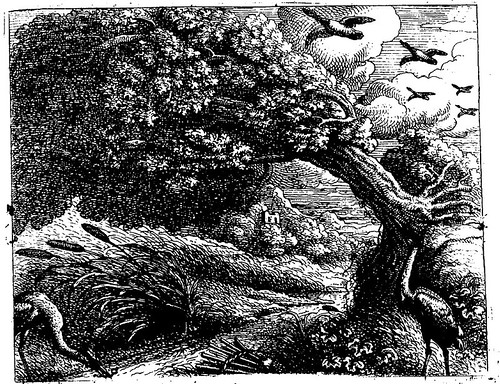HODIE (Roman Calendar): Kalendae Apriles, the Kalends of April.
MYTHS and LEGENDS: The art image for today's legend shows Nessus and Deianeira; you can also see the legends for the current week listed together here.

TODAY'S MOTTOES and PROVERBS:
TINY MOTTOES: Today's tiny motto is: Semper sursum (English: Always upwards).
3-WORD PROVERBS: Today's 3-word verb-less proverb is Omnium finis mors (English: Death is the end of all things)
AUDIO PROVERBS: Today's audio Latin proverb is Si satis est, multum est (English: If it is enough, it is a lot). To read a brief essay about this proverb and to listen to the audio, visit the Latin Via Proverbs blog.
PUBLILIUS SYRUS: Today's proverb from Publilius Syrus is: Minimum eripit fortuna, cui minimum dedit (English: Fortune can deprive least the person to whom she gave least).
ERASMUS' ANIMALS: Today's animal proverb from Erasmus is Ibyci grues (English: The cranes of Ibycus; from Adagia 1.9.22 - you can read about how the cranes avenged the murder of Ibycus here at Wikipedia - and see the animated gif below).
BREVISSIMA: The distich poster for today is Fama Carissima. Click here for a full-sized view; the poem has a vocabulary list and an English translation, too.

And here is today's proverbial lolcat:

TODAY'S FABLES AND SONGS:
FABULAE FACILES: The fable from the Fabulae Faciles widget is Simia et Piscatores, a story of monkey-see, monkey-do (this fable has a vocabulary list).
MILLE FABULAE: The fable from the Mille Fabulae et Una widget is Harundo et Quercus, a wonderful fable in praise of flexibility.
GreekLOLz - and Latin and English, too. Below is one of my GreekLOLz; for the individual Greek, Latin and English versions of the graphic, see the blog post: Αἱ Ἰβύκου γέρανοι. Ibyci grues. The cranes of Ibycus.

